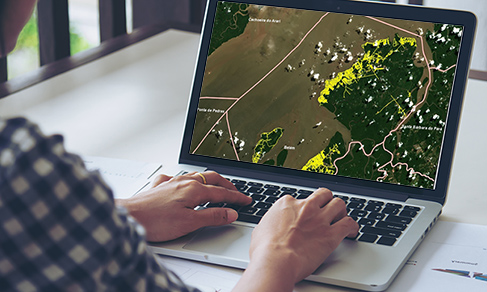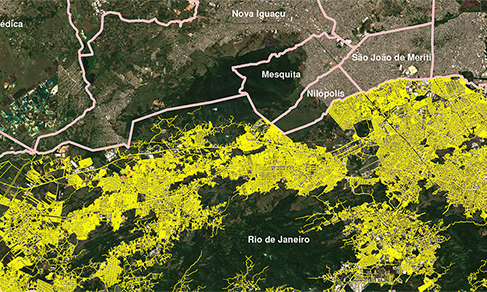Nossos serviços estão apresentando instabilidade no momento. Algumas informações podem não estar disponíveis.
Block-Face Database for Brazilian Addresses
Description
It is a geospatial database of lines that graphically represent the streets of urban areas, urban extension and rural agglomerations of Brazilian municipalities. In addition to the graphic information, there are attributes that refer to the name of the addresses, the territorial structure and the National Address List for Statistical Purposes – CNEFE. The Block-Face Database is fully updated at each Population Census and, between Censuses, it undergoes a continuous and cumulative process of specific updates in accordance with the progress of the institute's surveys and in accordance with specific field campaign actions carried out by teams from the Collection Network in the Agencies of the State Branches of the IBGE. In the current version, it reaches 13,688,342 line segments corresponding to block-faces, represented as a fundamental source for portraying the Brazilian territory and reflecting on its dynamics, supporting decision-making and the implementation of public policies with greater efficiency.
It is used by the IBGE to plan and carry out Census data surveys and Statistical Surveys such as the Continuous National Household Sample Survey - Continuous PNAD and the Consumer Expenditure Survey - POF, among others, covering all Brazilian municipalities, especially their cities and villages.
The construction of this database began with the migration of data from the 2007 Census (Census of Agriculture and Population Count), plus vector data through agreements with city halls and/or hiring of private companies, 2010 Population Census, 2017 Census of Agriculture and specific updates based on field surveys for the National Household Sample Survey, unifying the mapping used in these operations. These data were originally produced from different data sources, including cadastral mapping at different reference scales that have been adjusted, as available, to the geometries of high spatial resolution images, constituting precious elements in combination with the Mesh of Enumeration Areas.
More on the product - 2010
Learn more - 2010
News and Releases
Block-Face Database grows 31% from 2010 to 2021
The IBGE launches today (Dec 15) the 2021 Block-Face Database in digital format. The product consists...
15/12/2022
Block-face Database for Public Areas increases 29% between 2010 and 2020
The IBGE publishes today (13) the Block-face Database for Public Areas 2020, which encompasses urban...
13/07/2021
Errata
Calendar error in release "2022 Population Census: Block-Face Database for Brazilian Addresses"
Published date: 12/04/2024
Description
Error characterized for not meeting the release date of the product, according to calendar released in December 2023. The product was delayed due to the need to reprocess the lines representing the block faces, due to inconsistencies found in the consolidation of the basic inputs.Therefore, the release of the 2022 version of the product Block-Face Database for Brazilian Addresses, was postponed from April to June 2024.
Actions: The release calendar has been changed.





